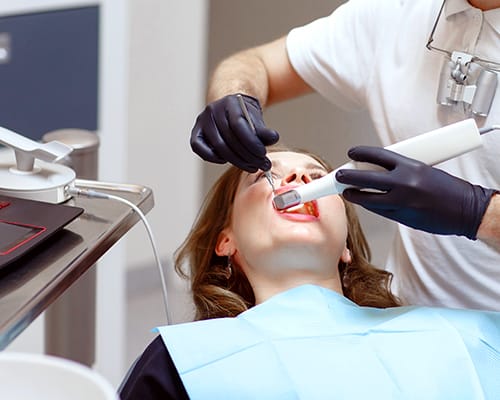Manor Park Dental Can Help Straighten Your Smile With Invisalign
Get started with a 30-minute consultation at our Ottawa clinic to see if Invisalign is right for you.
The Invisible Alternative to Braces
Invisalign provides the appearance of wearing no braces as the aligners work to correct orthodontic issues. Plus, with our digital scanner, you can view your virtual results before even starting treatment.
- Available for both teens and adults
- Clear and removable to fit your lifestyle
- No wires or discomfort
- Fewer appointments

What To Expect During Invisalign Treatment With Manor Park Dental
For more information, browse our Invisalign FAQs.
Consultation
Request Appointment with one of our dentists to see if Invisalign clear aligners are right for you.
Custom Treatment Plan
Your treatment plan will be customized to give you the smile of your dreams.
Fewer Appointments
With Invisalign (vs. braces), you'll spend less time in our office during your treatment.

The Invisalign Process
The team at Manor Park Dental will guide you through the Invisalign treatment process.

Step 1
Discuss Your Goals
Dr. Shodjaee will talk to you about how Invisalign can help your smile.

Step 2
Plan for Treatment
We will take impressions and photographs of your bite which are used to create your custom aligners.

Step 3
Pick Up Your Aligners
Our Ottawa clinic will contact you when your aligners are ready so you can get started.
Let's Get Started
Complete the form below and we'll be in touch to answer your questions and book your Invisalign consultation. Prefer to call?
